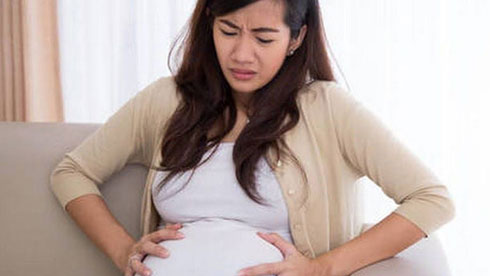 Following a healthy lifestyle and taking precautionary measures can help you to deal with gas and blotting during pregnancy. Read on to learn more about it.
Following a healthy lifestyle and taking precautionary measures can help you to deal with gas and blotting during pregnancy. Read on to learn more about it.Pregnancy welcomes you to an incredible journey. It gives every pleasure, joy and ecstasy that a woman cherishes for. Motherhood is that one feeling that gives ultimate happiness to a lady. In this delightful journey, a would-be-mother goes through several stages that are characterized with distinguishable changes in her physicality and emotional states.
With advancement of each week, a mother-to-be can feel various changes that remain either visible or invisible. Each of such sings, symptoms,
pregnancy characteristics and changes give her utter contentment to move ahead to the final stage of giving birth to a new life.
Cause for Gas and Bloating
However, there is one issue that is indeed embarrassing to talk about. However, the embarrassment does not change the fact in any way. An expectant lady usually has gas and bloating during the fourth month of her pregnancy. It is at this
second trimester that she usually notices that her digestive system has become sluggish and suffers infrequent and hard stools. This is caused due to the increase in the progesterone hormone during pregnancy that leads to constipation.
It is completely normal at this stage for the women to have a tad of gas with bloating. The pregnancy hormone eases the smooth muscles in the body like the gastrointestinal tract. This reduces the digestive system. Hence, the food stays within the tract for a greater amount of time making you feel gassy and bloated. An expecting baby would feel like passing wind more frequently especially after eating.
What to Avoid?
Bloating and gas are two of the
common symptoms observed during
early pregnancy and the food items that are likely to increase these signs are cabbage, beans, broccoli, cauliflower, asparagus and Brussels sprouts.
Also, to avoid excess gas and bloating, a mother-to-be can avoid pastas, potatoes, breads, white rice, oat bran etc as they take longer time to digest during pregnancy. Also, you can avoid carbohydrate drinks and wearing tight fit clothes.
The gas gets trapped in the digestive tract in a couple of ways; either when you swallow air or when your undigested food is broken down by the bacteria in your large intestine.
The excess gas produced in the body is ejected through bloating, burping and flatulence. These characteristics do not seem to be harmful as it does not create any adverse effect on the baby as the tiny life stays safe within the uterus that is surrounded by amniotic fluid. However, it might cause some uncomfortable sensations in your gut, especially after you finish a large meal.
Is Gas and Blotting Harmful During Pregnancy?
Maximum of such gas and bloating cases in pregnancy do not require any sort of medical treatment of consultation. The indications gradually disappear naturally after a brief span of delivery. As you move forward in pregnancy, the enlarging uterus crowds the abdominal activity, causing further push in your stomach. This results in greater bloating,
heartburn and constipation.
How to Ease the Symptoms of Blotting?
However, if such symptoms make you feel uncomfortable, then you can seek to follow certain remedies that can help you ease your discomfort.
- Gulp down plenty of water to keep your digestive system clean
- Eat multiple small meals
- Refrain from smoking, consuming junk and fiery products, having spicy and zesty foods, dairy products, sugary foods, alcohol and chewing gum.
So, are you feeling gassy and bloated? Well, who else to blame other than the pregnancy. Belching, flatulence, gas and such other sorts are not fun, but they are sort of part of this incredible journey of carrying a baby. You just cannot stay away from these symptoms that come along with the job of pregnancy. Nonetheless, you can certainly reduce the gas effect by avoiding the foods mentioned above.
Is gas and blotting common during pregnancy? How to prevent gas and blotting during pregnancy? What kind of food items are responsible for gas and blotting during pregnancy? Discuss here.











 Following a healthy lifestyle and taking precautionary measures can help you to deal with gas and blotting during pregnancy. Read on to learn more about it.Pregnancy welcomes you to an incredible journey. It gives every pleasure, joy and ecstasy that a woman cherishes for. Motherhood is that one feeling that gives ultimate happiness to a lady. In this delightful journey, a would-be-mother goes through several stages that are characterized with distinguishable changes in her physicality and emotional states.With advancement of each week, a mother-to-be can feel various changes that remain either visible or invisible. Each of such sings, symptoms,
Following a healthy lifestyle and taking precautionary measures can help you to deal with gas and blotting during pregnancy. Read on to learn more about it.Pregnancy welcomes you to an incredible journey. It gives every pleasure, joy and ecstasy that a woman cherishes for. Motherhood is that one feeling that gives ultimate happiness to a lady. In this delightful journey, a would-be-mother goes through several stages that are characterized with distinguishable changes in her physicality and emotional states.With advancement of each week, a mother-to-be can feel various changes that remain either visible or invisible. Each of such sings, symptoms, 

















